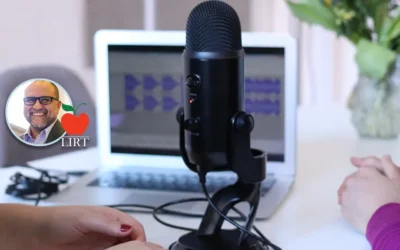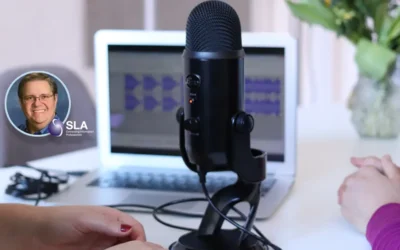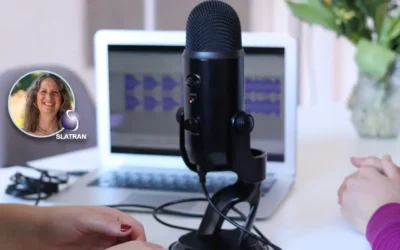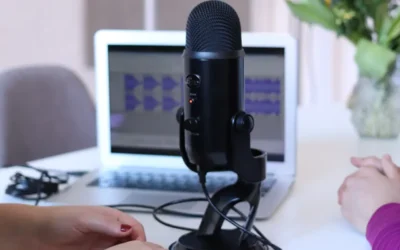Creating a Culture of Learning in Your Library: Developing Growth Mindsets
Lauren Hays
As special libraries continue to grow and change with new organizational needs and technology, it can be hard for employees to feel confident. Change is hard. Carol Dweck identified one specific reason why change is harder for some than others. She said that people have a growth mindset or a fixed mindset.
In a nutshell, people either believe their intellect is fixed, or they believe if they try they can keep learning.
Neuroscience research has shown that our brains have more plasticity than originally realized. Our brains can develop more connections, allowing us to learn throughout our entire lives. Dweck has said that people with a growth mindset are more resilient in the face of obstacles. If you believe you can learn more you will act like it. However, if you believe your abilities are fixed you will also act like it. More specifically, she has said “When students believe they can get smarter, they understand that effort makes them stronger. Therefore, they put in extra time and effort, and that leads to higher achievement.”
You may have experience working with colleagues who do not want to try or who respond emotionally to any feedback that is not 100% positive. Their reason for being resistant to learning and critical feedback may be because they have a fixed mindset and do not believe they can learn new things. Instead, they see critical feedback as a personal attack.
Alternatively, people with a growth mindset will:
- Be motivated to learn
- Be motivated to make adjustments to their current actions
- Be willing to share and support colleagues because they do not feel threatened (How to develop a growth mindset in your team, n.d.).
Skills for special librarians in managerial roles include developing a growth mindset in your team that can help everyone adjust, change, and grow to meet the needs of your organization.
How to Promote a Growth Mindset
First, review your feedback and coaching style. One of the best ways to support a growth mindset in staff is to praise the process rather than the end result. In other words, when providing feedback, focus on praising the effort instead of only acknowledging when a task or project is complete. As Steven Bell wrote, “Those with a fixed mindset believe they have limited intelligence and lack the mental capacity to learn. Trying and failing to learn something new would confirm their deficiencies. Out of fear and in defense, they refuse to try. It is also unfortunately possible that (someone) convinced the [employee] of their inferiority in a certain subject. Showering [employees] with praise for smartness, as opposed to effort, can also set [employees] up for future failures when the going gets tough.”
Rather than setting performance goals, skills for special librarians who manage staff also include helping employees set goals that encourage them to learn new things (How to develop a growth mindset in your team, n.d.). In her research, Dweck found that children with performance goals were more likely to become frustrated when difficult situations arose. However, those with learning goals worked to overcome obstacles (McKinney, 2007). We should encourage our employees by setting goals where they need to learn something new, and not solely set goals that reinforce their ability to do things they already know how to do.
Conclusion
By taking time to focus on building a team of individuals who believe they can continue to learn new things throughout their entire lives, we prepare our special libraries for the inevitable changes that will occur.
References
Bell, S. (2016). We need a growth mindset for learning library research. Library Journal. Retrieved from https://lj.libraryjournal.com/2016/06/opinion/steven-bell/we-need-a-growth-mindset-for-learning-library-research-from-the-bell-tower/
Dweck, C. (2007). Mindset: The new psychology of success. New York City, NY: Ballentine.
How to develop a growth mindset in your team. (n.d.). Impraise Blog. Retrieved from https://blog.impraise.com/360-feedback/how-to-develop-a-growth-mindset-in-your-team-performance-review
McKinney, M. (2007). Which should you have? Performance goals versus learning goals. Leading Blog. Retrieved from https://www.leadershipnow.com/leadingblog/2007/12/which_should_you_have_performa.html
Lauren Hays
Lauren Hays, PhD, is an Assistant Professor of Instructional Technology at the University of Central Missouri. Previously, she worked as an Instructional and Research Librarian at a private college in the Kansas City metro-area. Please read more on Lauren’s skills for special librarians, and you may want to take a look at Lucidea’s powerful ILS, SydneyEnterprise.
Similar Posts
Interview with Victor Baeza about ALA’s Library Instruction Round Table
Interview with Victor Baeza, President of LIRT, about how it benefits from and supports special librarians whose roles involve teaching or training.
Interview with Eugene Giudice, SLA Treasurer
Interview with SLA’s Treasurer about the future of the special library profession and how the Special Libraries Association can benefit librarians
Interview with Cara Marcus on Transportation Librarianship and SLA
Interview with Cara Marcus, the president of the Special Libraries Association (SLA) transportation community about transportation libraries and SLA
Interview with Christian Nappo on the National Librarians of Medicine
Interview with the author of a reference-ready book on the twenty-seven men and women who headed the National Library of Medicine.
Hosting service
Enjoy all of the benefits of your Lucidea solution with secure, reliable, stress free hosting
Programs & incentives
No matter your size or budget, we’ve got you covered, today and tomorrow




Leave a Comment
Comments are reviewed and must adhere to our comments policy.
0 Comments